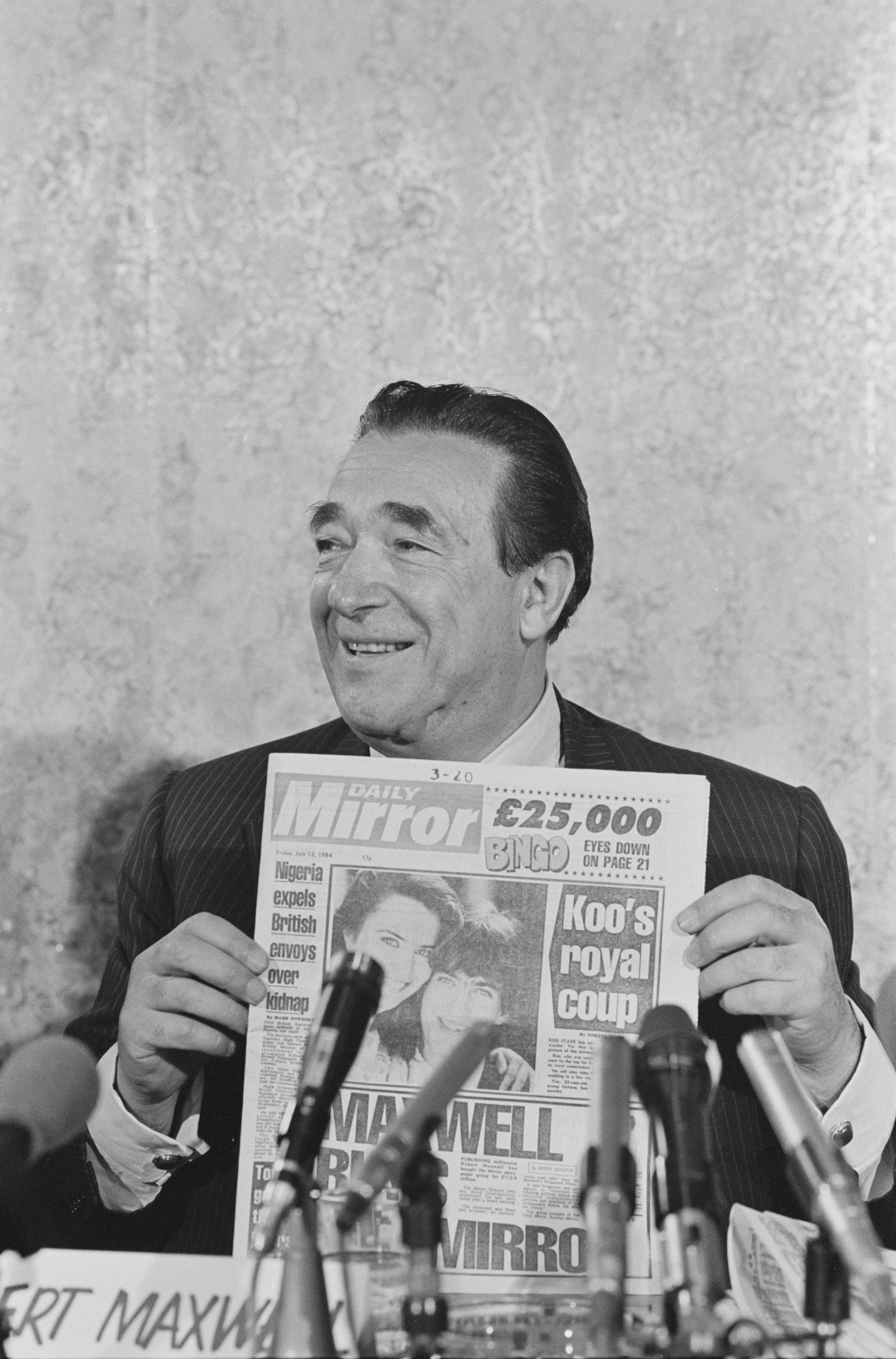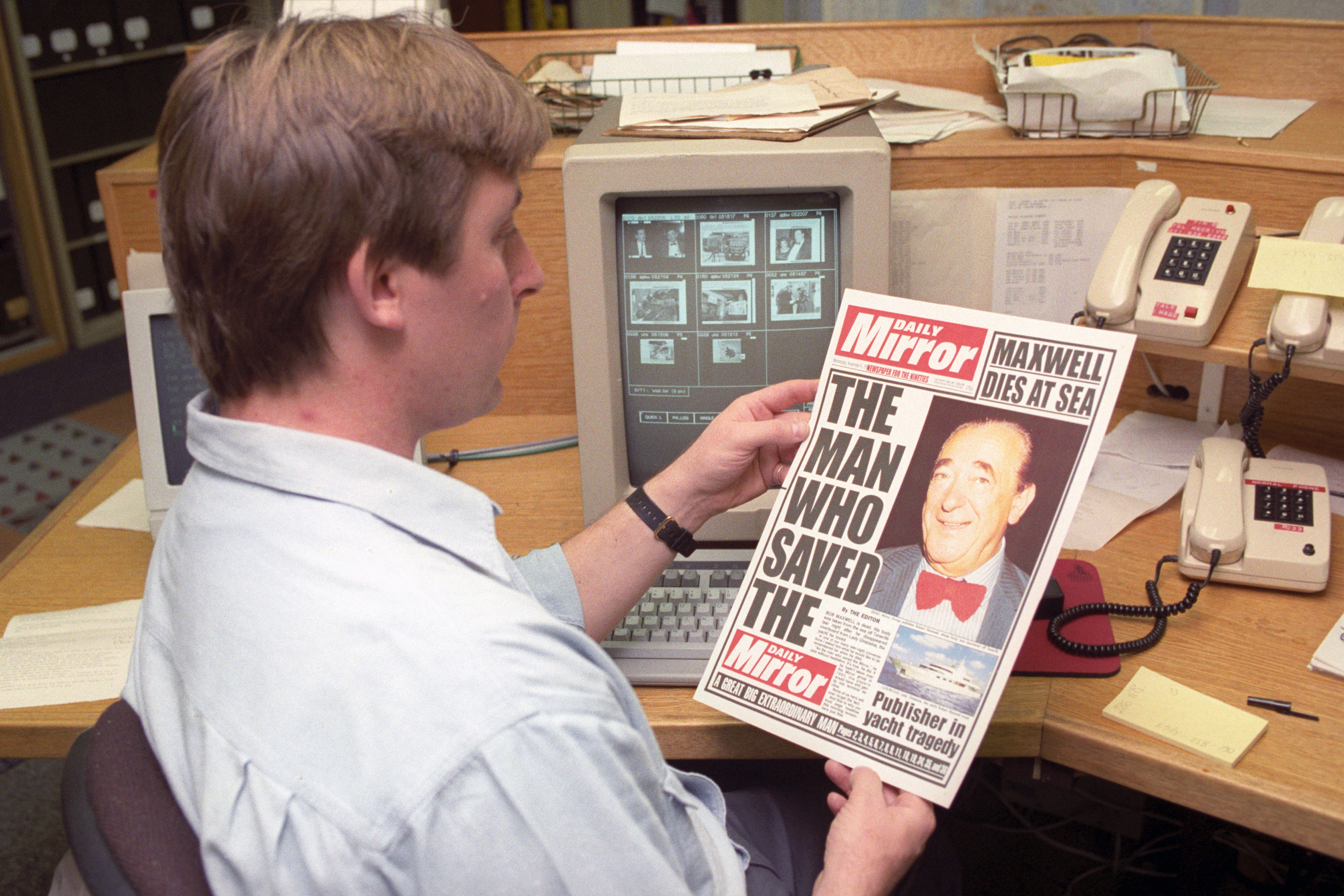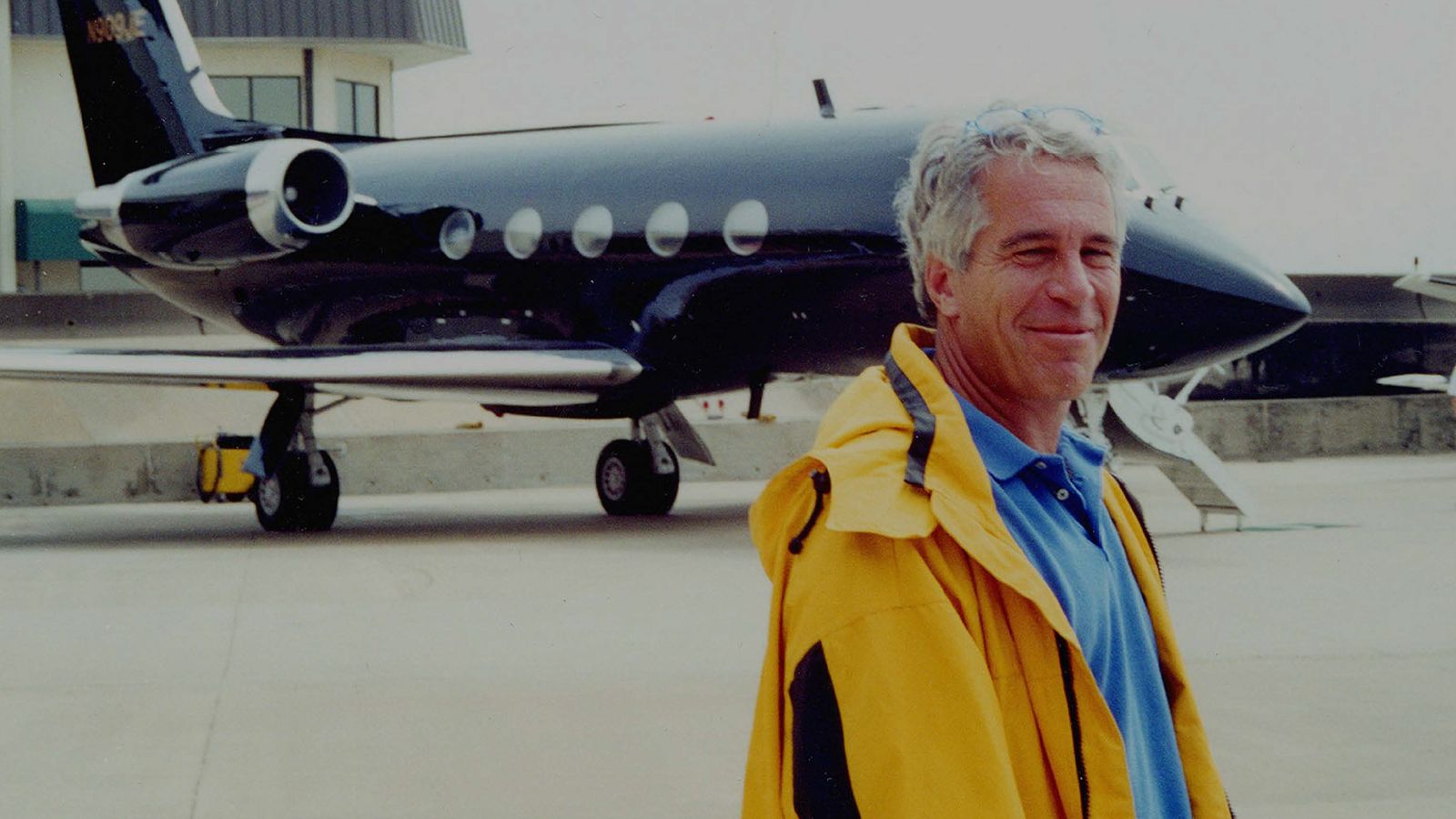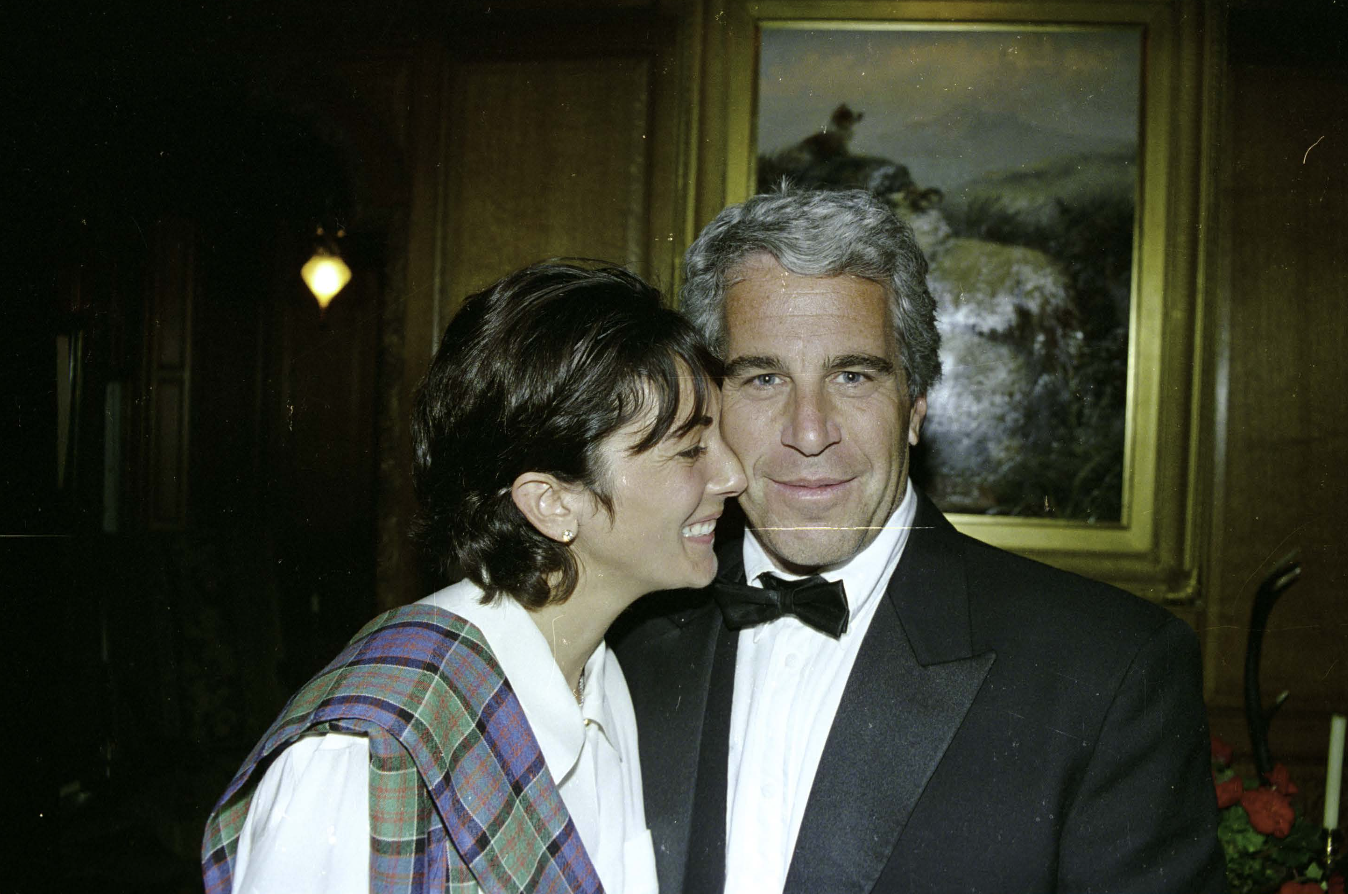How the spectre of press baron Robert Maxwell hung over the trial of his favourite daughter, Ghislaine
Larger-than-life businessman died 30 years ago but his story continues to reverberate, writes Andrew Buncombe


Your support helps us to tell the story
From reproductive rights to climate change to Big Tech, The Independent is on the ground when the story is developing. Whether it's investigating the financials of Elon Musk's pro-Trump PAC or producing our latest documentary, 'The A Word', which shines a light on the American women fighting for reproductive rights, we know how important it is to parse out the facts from the messaging.
At such a critical moment in US history, we need reporters on the ground. Your donation allows us to keep sending journalists to speak to both sides of the story.
The Independent is trusted by Americans across the entire political spectrum. And unlike many other quality news outlets, we choose not to lock Americans out of our reporting and analysis with paywalls. We believe quality journalism should be available to everyone, paid for by those who can afford it.
Your support makes all the difference.When Robert Maxwell’s body was found floating in the Atlantic Ocean, 20 miles southwest of Gran Canaria, speculation over the cause of his death immediately took hold – had he jumped, had he slipped into the water, or had he been murdered, most fancifully by Israeli intelligence?
To some extent that speculation continues 30 years later. While a coroner ruled that the 68-year-old had died as a result of accidental drowning, to this day many who knew him believe that to be incorrect.
One detail on which there is agreement about his demise in November 1991, as he faced the music over massive mounting debts and had skipped a meeting with creditors at the Bank of England, was where he was last seen alive. It was aboard his luxury yacht, Lady Ghislaine, that Maxwell had bought for $20m (£15m) in 1986 and named for the youngest and favourite of his nine children, Ghislaine Maxwell.
The final words of the Mirror Group tycoon, who stole as much as £460m ($600m) from the company’s pension fund, were to the bridge of his yacht, to complain about the temperature in his cabin at 4.45am on 5 November 1991. Around 12 hours later, a Spanish search crew spotted his body floating in the water.
In recent weeks, both the fearsome personality of the larger-than-life press baron and the nature of his demise, have been an attendant narrative to the courtroom drama that has gripped the Thurgood Marshall US Courthouse in New York where Ghislaine Maxwell, 60, has been on trial, charged with grooming underage girls for her partner, Jeffrey Epstein.
Maxwell, charged with sex trafficking and perjury, has denied the charges. On 29 December she was found guilty on five sex-trafficking charges.
As lawyers for the prosecution and defence presented their evidence about Ghislaine Maxwell and her alleged role in a sex trafficking ring centred around Epstein, who took his own life while on remand in prison in 2019, the name of her father has been little mentioned.
Yet, many who knew Robert Maxwell, or researched his life, believe it may be difficult to disentangle his personality and the way he treated his children, from what became them after his death.
That may be particularly so in the case of Ghislaine Maxwell, who is the only one of Maxwell’s children who apparently believe he was murdered; just as her father’s life was darkened by tragedy, her life was also frequently bleak as a result of her father’s actions and moods.
A year after she was arrested in July 2020, one of her brothers, Ian Maxwell, told makers of an ABC News documentary: “Ghislaine, however, uniquely in our family, has always thought he was murdered, and she’s alone in that.” He added: “It’s her profound conviction that that is what happened.”

‘I think Ghislaine was brought up under a black cloud’
John Preston, author Fall: The Mysterious Life and Death of Robert Maxwell, Britain’s Most Notorious Media Baron, says it is impossible to understand the business giant without appreciating the impact wrought by the death of his parents, three siblings and a grandfather in Auschwitz.
“Maxwell set out to become the greatest media Baron in the world. And he very nearly succeeded, but it was it all went horribly wrong,” Preston told interviewer Anthony Scaramucci during an event organised by the networking group, Salt. “But one of the extraordinary things about Maxwell, is that it’s hard to think of anyone in the 20th century, who journeyed as far from his roots as Maxwell did.”
Preston said another dark star in the Maxwell family orbit was created by a grievous injury to Robert and Elizabeth Maxwell’s firstborn, Michael who fell into a coma at the age of 15 after a car crash in 1961, two days after the birth of Ghislaine. He died eight years later, never recovering consciousness.
“That cast this terrible black cloud over the Maxwells family life. And just as Maxwell himself had been brought up under this terrible cloud of what had happened to his own family, I think Ghislaine was brought up under a similarly black cloud.”
Follow live updates on the Ghislaine Maxwell trial
Preston described Sunday lunches at the expansive Maxwell family home in Oxfordshire where he would quiz each child about their plans for the week.
“Another of Maxwell’s daughters described to me the kind of fear of watching the search light beam of her father’s gaze, move around the table towards her,” he says.
“I don’t think Ghislaine suffered as badly from that, perhaps, as the others. She was his father’s favourite. I think she was the one who could charm him more easily than the others, and possibly was less intimidated by him. And then when her father died, she was absolutely grief-stricken, possibly even more so than any of her siblings. I think she absolutely adored her father.”
Ghislaine Maxwell was born on Christmas Day 1961 in northern France. She grew up with the rest of the family at the Maxwells’ Headington Hill Hall home. This was also the headquarters of her father’s Pergamon Press publishing company, which Ghislaine would start working for at the age of 14.
Later, she studied modern history at Oxford University, where she knew Hugh Grant. She also set up a student supporters club for Oxford United, which her father owned.
‘What was extraordinary about Maxwell is the terror he inspired’
One person who witnessed first hand the fear Maxwell, who was born in what was then Czechoslovakia in 1923, could instill in people was Andy McSmith, a political journalist with a long career, including longs spells at The Independent, and The Independent on Sunday, where he was political editor.
For a number of years he covered British politics for the Daily Mirror, one of Maxwell’s newspapers, and for two memorable months, he was the chairman’s spokesperson. McSmith says they were “two of the worst months” of his life.
“What was extraordinary about Maxwell is the terror he inspired. You’d see him walk into a room and people would just freeze,” says McSmith.
“I was once sitting in a room with my back to the door talking to somebody and suddenly, this person just froze, and it was just like a fright all over his face as if some wild animal had walked in. And there in the doorway was Bob Maxwell. He was a scary guy.”
McSmith, whose books include No Such Thing As Society: A History of Britain in the 1980s, says he only encountered Ghislaine Maxwell when he was seated outside her father’s office, where there was a crowd of people hoping to see him, “like the outer room of the Tsar of Russia with all these petitioners waiting to see him”.
“None of them dared approach the door behind which he was to be found. And I noticed this young woman, just walk straight past all of us and straight in there,” he said.
“And I said ‘Oh I know who that is. That’s Ghislaine’.”

Did someone try to make Maxwell’s helicopter crash?
During his long presence in business and political life – he spied for Britain at the end of the Second World War and was briefly a Labour Member of Parliament in the 1960s – Robert Maxwell was the subject of many stories told up and down Fleet Street, the London thoroughfare that then was home to most of the national newspapers, including the Daily Mirror.
Some were true, others may have been apocryphal.
One that made it into Private Eye, the gossipy investigative weekly, was a story of how Maxwell’s helicopter once skidded as it landed on top of one of the rooftops close to the Mirror.
Maxwell was furious and is said to have fired the pilot. However, when the confused pilot examined the landing circle’s wind sock, he found it contained a brick, rendering it useless as an aid with the descent.
Steve Boggan a former chief reporter for The Independent, who spent two years investigating the finances of the Mirror Group, and Maxwell’s sons Ian and Kevin, says he was told the story about the wind sock by two people close to Maxwell.
“Maxwell was hated,” says Boggan, an investigative reporter and filmmaker, whose documentaries include Follow the Money.
“He was a horrible bully. According to my sources, Kevin and Ian were horribly bullied by Maxwell. He was massively overbearing, and I was told they were afraid of him.”
Another story about Maxwell, this one certainly true though details are disputed, took place the evening that news broke of Maxwell’s death at sea.
Michael White, a political correspondent for TheGuardian who hated Maxwell, often nicknamed “Capt Bob”, has previously told how he was delighted by the news and walked up and down the press corridor at Westminster, repeating the refrain “Capt Bob Bob Bob”.
He continued to do so, even upon reaching the Mirror’s office where reporter Alastair Campbell told him to be quiet. When White continued, the man who would go on to become Tony Blair’s top spokesman and media adviser, punched him in the face. White says he punched him back.
The next day, the Mirror devoted more than 20 pages to largely fawning stories with a front-page headline that read: “The man who saved the Mirror.”

‘She was really, really upset. You could tell, this was ‘Daddy’s girl’
Meanwhile, Maxwell’s family, including his wife Elisabeth, usually known as “Betty”, and their son Philip, flew to Gran Canaria and identified his body at the Gando airbase. They were accompanied by a reporter and photographer from the Mirror.
A day or so later, Ghislaine Maxwell joined them. “She was really, really upset. You could tell, this was ‘Daddy’s girl’. She was inconsolable; she could hardly speak. When she saw her mother, her knees just buckled,” the photographer, Ken Lennox, would later tellTheGuardian.
He added: “She was really devastated. If you look through the Maxwell files, he would take her to events: Elton John’s birthday, football matches. She was always there, clinging on to him. She called him ‘My Daddy’ all the time.”
As it was, it was Lennox who would help prepare Maxwell’s daughter when she delivered a statement to the media, speaking in both Spanish and English, while still standing on the deck of the Lady Ghislaine.
“I want to take this opportunity to thank all the many hundreds of people who have sent messages of support to us at this very, very sad time,” she said, dressed in a tartan-checked skirt and jacket.
“I want also to thank the press for the courtesy and consideration to my mother and to us at this time, which we appreciate very much. Thank you, very much.”
Tributes to Maxwell poured in from around the world – from Margaret Thatcher, George HW Bush, and Mikhail Gorbachev, who had collaborated on a research centre in Minneapolis.
Within hours, Maxwell’s body would be flown to Jerusalem, after his family obtained special permission from the Israeli authorities. He was buried on the Mount of Olives, with Israel’s prime minister Yitzhak Shamir among the mourners.
The New York Times reported: “The shrouded body of Robert Maxwell was lowered today into a rocky grave on the Mount of Olives, where Jews since biblical times have found permanent rest.”

‘Maybe you find solace in another very strong, selfish character’
Maxwell’s death did not end the problems facing his family. Rather, it brought new ones.
In the days and weeks that followed, more details emerged of the massive debts owned by his companies Maxwell Communications Corporation (MCC) and Mirror Group holdings. Four weeks later, sons Ian and Kevin asked the British high court to appoint administrators to run the family’s two companies which had debts of as much as $2bn. Kevin Maxwell, the company’s chairman, was declared Britain’s biggest bankrupt.
Ian and Kevin were arrested in June 1992 and charged with fraud before being cleared in 1996. Kevin Maxwell, who attended much of his sister’s trial, did not repose to enquiries.
After her father’s death, Ghislaine Maxwell continued to spend much of her time in New York, where her father had sent her after buying The New York Daily News in January 1991.
It was in New York that would meet and become friends with Epstein, a billionaire former Bear Stearns trader, who had set himself up as a consultant.
There appears to be some uncertainty as to when and where they first met, but by 1995, Epstein had set up a business entry for her, the Ghislaine Corporation, in Florida’s Palm Beach.
Among those who met Epstein and Ghislaine some time after that, was Campbell, the former Mirror reporter-turned media strategist for Blair.
Writing in GQ, he recounted a time with Maxwell’s daughter in the 1980s when they were both dispatched to Paris to hand over the remains of an Argentine political and military leader, Juan Manuel de Rosas, who had died in Hampshire in 1877. She also wanted to shop for underwear, he said.
Years later, they bumped into each other on a flight to New York, where she invited him for a drink with Epstein at their house. Epstein was “dressed in the New York super-rich smart casual uniform of cashmere sweater, light-coloured chinos, handmade shoes”.
“The visit was neither as memorable, nor as weird, as the visit to Paris with an urn. It was, however, a bit weird. And though I saw no sign and had no hint of the kind of behaviour that would lead to his fall from grace and his suicide in jail, it was, well, a bit creepy,” writes Campbell. (He says he thinks it was 2003.)
“Once she had introduced us, Ghislaine disappeared, giving us that feeling of this being very much a ‘man to man’ event, to go over big things like geopolitics.”
Andy McSmith, Maxwell’s spokesperson for two months and who believes Maxwell took his own life, also believes Ghislaine Maxwell’s relationship with her father may have influenced her decision to turn to someone such as Epstein.
Maxwell, he says, must have been “a very terrifying man to have as father”, even if she was his favourite.
“What do you do if you’ve lived in the shadow of a very strong, very selfish character, a very demanding character who turns out to be a rogue?” he adds.
“I don’t know what do you do, but maybe you find solace in another very strong, selfish character who you know is also a rogue but that you can overlook that.”
Join our commenting forum
Join thought-provoking conversations, follow other Independent readers and see their replies
Comments